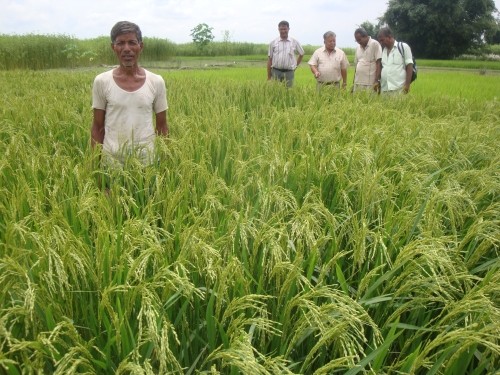In a bid to promote food security and economic growth, the US Agency for International Development (USAID) has introduced two new agricultural programs in Nepal.
The two different Indian programs focus on developing the current educational curriculum of Agriculture and Forestry University of Chitwan and enhancing the farming technologies to reap better harvest.
Speaking at an event held to launch the programs in Kathmandu, USAID Mission Director Beth Dunford said, “We are working together with the Government of Nepal and key private sector actors to build high impact partnerships to scale-up innovations, strengthen local capacity and build thriving markets that will one day replace our assistance.”
“In Nepal, nowhere is this more important than in agriculture development, which we know is one of the surest routes out of poverty,” she added.
The task of developing agriculture education has been handed over to Agriculture Innovation Partnership (AIP), an organization devoted to improving the productivity of the agriculture sector by boosting educational necessities and giving farmers information on crops and weather.
“May it be any country, there is always a need to develop education curriculum focusing on the needs of famers and agricultural market,” said Venu Gopal Chintada, vice-president of Sathguru Management Consultants, which is responsible for coordinating and facilitating implementation of AIP.
On the other hand, Cereal Systems Initiative for South Asia (CSISA) program has partnered in developing agricultural equipment that is now extensively used by farmers in Punjab, Haryana, Uttar Pradesh, Bihar and Odisha of India.
Meanwhile, Rajendra Prasad Adhikari, joint secretary at the Policy and International Cooperation Co-ordination Division of Agriculture Ministry, expressed gratitude for USAID’s assistance in developing the agriculture sector in Nepal.


